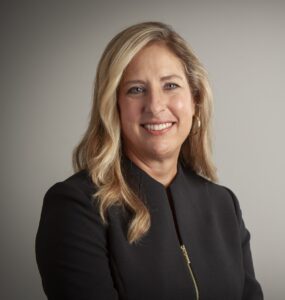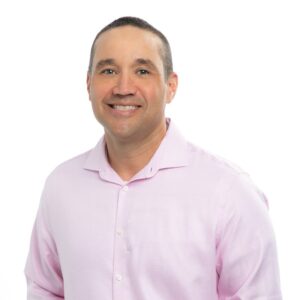Written by Andrew Wig, Senior Editor of TechChannel
This article, which has been modified, originally ran on TechChannel before the December 3 webinar. For more content like this, visit the TechChannel website.
It’s no secret that working in tech pays—those in the field earn more than double the U.S. median wage. But not everyone has equal access to this lucrative line of work. Among these underrepresented demographic groups are Native Americans.
Making Our Strong Community Stronger (MSCS), a diversity, equity and inclusion initiative within the mainframe industry, is trying to change that with its “Native Americans in Tech” webinar, which took place on Nov. 13.

Dean Dauphinais
“My hope is that we are doing a little bridge-building here for folks that don’t always get to talk to a Native American, and even less so, talk to Native Americans in tech,” says Dean Dauphinais, the webinar’s moderator.
Dauphinais hopes the panelists can help fellow Native Americans see a career in tech as an option. “These panelists are actually those role models that are doing this work,” he explains. “They’re CEOs. They’re working for IBM in important positions. They’re working on critical, important mainframe infrastructure projects.”
In Tech, an Untapped Opportunity
In the U.S., the median wage for IT occupations was $104,420 in 2023, more than double the median wage for all occupations in the country. Despite living in the so-called Information Age, “we could do better to inform Native Americans about the opportunities in tech,” Dauphinais says.
But for many Native American high school students, avenues for exploring a career in tech are limited. According to the 2023 report, “State of Diversity: The Native Tech Ecosystem,” authored by the American Indian Science and Engineering Society (AISES) and the Kapor Center, only 20% of high schools located on reservations offer computer science programs.
While statistics reliably show that Black and Latino populations are underrepresented in the tech workforce, the number of Natives in tech is rarely tracked, the AISES-Kapor report says. However, educational data provide some insight on Native representation. According to the report, American Indians and Alaska Natives receive 1% of associate’s degrees in computing. That’s just a tick below the demographic group’s 1.3% share of the entire U.S. population. But their representation dwindles for more advanced degrees. They receive .4% of bachelor’s and master’s degrees in computing, and .1% of doctoral degrees, according to the AISES-Kapor report.
Predictably, Native Americans are also underrepresented in leadership roles at the largest U.S.-based tech companies. The AISES-Kapor report states there were no members of American Indian or Alaska Native descent on the boards of the top 200 tech companies between 2021 and 2022.
“The need for greater inclusion and access to opportunities is critical to closing this representation gap and bringing more Native perspectives into the tech space,” comments Jeanne Glass, who launched MSCS and founded VirtualZ, a woman-owned mainframe software provider.
An Example of Native Upward Mobility
While the industry leaders in the upcoming webinar serve as examples of Native American success in tech, the moderator, Dauphinais, is a model of success in his own right. The son of a janitor-turned superintendent of tribal schools, he grew up on the Spirit Lake Nation reservation in North Dakota and is an enrolled member of the Turtle Mountain Band of Chippewa Indians. Despite his father’s career climb, Dauphinais and his five siblings were no stranger to economic hardship, even if they didn’t realize it at the time. “I didn’t really know we were poor,” he remembers, “because we had food, and we had a nice house on the reservation. We had 13 acres of land and our parents provided for our basic needs.”
At school, he tested into the gifted-and-talented program but chose to pass on the more rigorous curriculum that came with the honor. “I’m like, ‘Not a chance, I’m out. I want to go home. I want to go outside. I want to play with my dog, and I don’t want to be doing more school after school’s out,’” he recalls. He adds that like many Native students, he didn’t want to spend any more time in the traditional classroom setting than he had to.
So, despite his gifts, he says he struggled academically, which he now attributes to a general feeling of disengagement. Upon graduating high school, one of his options was to join the military. “The Marine Corps was a way out for me from the reservation, and it was a way for me to get the discipline that I needed and direction that I needed,” he says.
The Corps also taught him the value of diversity. “Talk about a hodgepodge melting pot of diverse backgrounds,” he says of his unit’s makeup. “It creates something special when a diverse group of people are thrust into a high intensity, fast-paced environment where teamwork is a matter of life and death.”
Now, in addition to helping Native communities through his small business, Native Eco Solutions, Dauphinais serves on the Secretary of Veterans Affairs’ Advisory Committee on Tribal and Indian Affairs, one of 12 members representing the 12 Indian Health Service (IHS) regions.
Starting with the Nov. 13 webinar, he sees reasons to be optimistic that more Native Americans can secure jobs in well-paying fields like tech. “I’m encouraged by these kinds of events, by corporations taking notice and exercising corporate social responsibility, because they don’t have to due to the nature of corporations. But it is appreciated,” he says.
Dauphinais knows the current underrepresentation of Native Americans in tech won’t be resolved overnight, or with a single webinar, but he also knows that every bit of effort counts. “[We’re] just trying to move the needle a little bit,” he says.
Meet the Panelists who joined Dauphinais:

Jeanne Glass, founder and CEO of VirtualZ Computing, launched MSCS, the mainframe industry’s first-ever C-level initiative focused on diversity, equity, and inclusion. With senior leadership experience at tech startups and major companies like CA Technologies and FICO, she is a sought-after keynote speaker at industry conferences. A recognized thought leader, podcast guest, and author, Jeanne is a two-time IBM Champion. She chaired SHARE’s Industry Influence and Editorial committees during her four-year term on the user group’s Board of Directors, and was also a founding member of SHARE’s Women in IT initiative. Jeanne holds a master’s degree in international management, a bachelor’s in management information systems, and serves as an adjunct professor of entrepreneurial thinking at the University of St. Thomas in Minnesota.
 Phil Sutherin, a member of the Montana-based Assiniboine Tribe and the American Indian Science and Engineering Society, is a mainframe technical consultant for Broadcom, where he helps customers integrate with the company’s mainframe workload automation and scheduling products. During his time in that role, he has been impressed with the value that Broadcom places on diversity, equity and inclusion. Upon graduating from Haskell Indian Nations University in Lawrence, Kansas—and working in the school’s IT department for nearly four years—Phil began his mainframe journey at IBM, where he worked as a z/VM systems programmer/analyst. He has also held that role at Blue Cross Blue Shield, in addition to working as an IBM i systems administrator for a smaller insurance company.
Phil Sutherin, a member of the Montana-based Assiniboine Tribe and the American Indian Science and Engineering Society, is a mainframe technical consultant for Broadcom, where he helps customers integrate with the company’s mainframe workload automation and scheduling products. During his time in that role, he has been impressed with the value that Broadcom places on diversity, equity and inclusion. Upon graduating from Haskell Indian Nations University in Lawrence, Kansas—and working in the school’s IT department for nearly four years—Phil began his mainframe journey at IBM, where he worked as a z/VM systems programmer/analyst. He has also held that role at Blue Cross Blue Shield, in addition to working as an IBM i systems administrator for a smaller insurance company.
 Jeremy Hamilton, a Cherokee from Oklahoma, works as a strategic field CTO for BMC Software. He has spent 20 years following his passion for the mainframe under various roles. Known as “Big Iron Guy” on LinkedIn, he uses the platform to share his perspective on the latest trends—such as DevOps, SRE and AIOps—and how they can help mainframe operations teams. He obtained a bachelor’s degree in engineering and physics from Fort Lewis College in Durango, Colorado, and was the first Native American to graduate from the Leavy School of Business at Santa Clara University in California, earning a master’s degree in information systems. He is currently an active member and record keeper for the Oklahoma Professional Chapter of the American Indian Science and Engineering Society.
Jeremy Hamilton, a Cherokee from Oklahoma, works as a strategic field CTO for BMC Software. He has spent 20 years following his passion for the mainframe under various roles. Known as “Big Iron Guy” on LinkedIn, he uses the platform to share his perspective on the latest trends—such as DevOps, SRE and AIOps—and how they can help mainframe operations teams. He obtained a bachelor’s degree in engineering and physics from Fort Lewis College in Durango, Colorado, and was the first Native American to graduate from the Leavy School of Business at Santa Clara University in California, earning a master’s degree in information systems. He is currently an active member and record keeper for the Oklahoma Professional Chapter of the American Indian Science and Engineering Society.
Tech Career Resources for Native Americans
- American Indian Science and Engineering Society (AISES) – Scholarships, mentorship, networking opportunities
- Native Forward Scholars Fund – Scholarships
- National Center for American Indian Enterprise Development (NCAIED) – Networking opportunities, mentorship, career fairs
- Natives in Tech – Networking opportunities, guidance, open-source technology for Native communities
- TechHire – Training programs
- Per Scholas – Training programs
Learn more about the Making our Strong Community Stronger initiative by joining our LinkedIn Group.